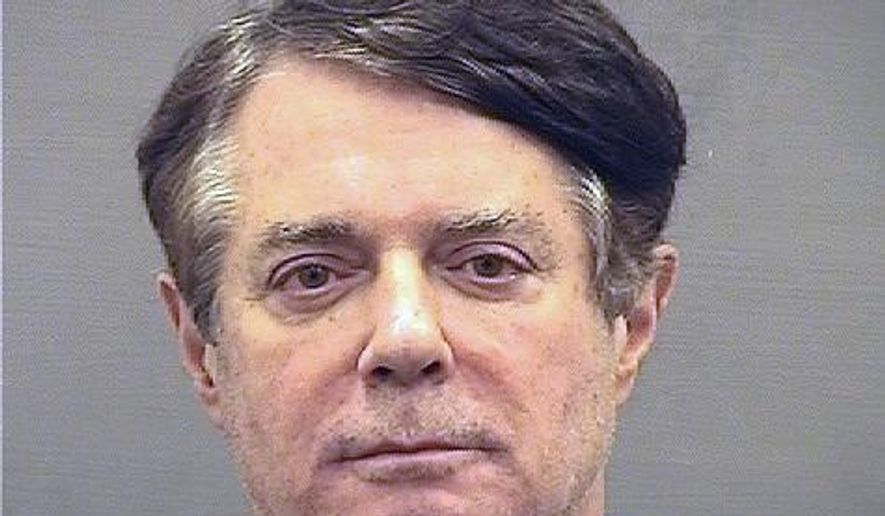In the first glimpse of a possible trial defense, attorneys for Paul Manafort on Tuesday asked a District of Columbia federal court if they could argue the Justice Department’s limited enforcement of the Foreign Agents Registration Act has created confusion among lobbyists.
Prosecutors from special counsel Robert Mueller’s office have accused Manafort, a former Trump presidential-campaign chairman, of violating federal law by failing to register as a foreign lobbyist under the Foreign Agents Registration Act, or FARA.
But Manafort’s attorneys appeared to indicate in their most recent court filings a lack of public guidance from the Justice Department and few prosecutions left their client unable to decipher FARA’s arcane registration requirements.
Since 1966, the Justice Department has only prosecuted seven FARA cases and made its private FARA advice available to the public in June, Manafort attorney Kevin Downing said in the filing.
“Mr. Manafort intends to elicit from the Government’s witnesses the fact that the virtual lack of enforcement actions and DOJ-issued advice has left the lobbying and public relations community without an adequate understanding of the statute’s requirements,” Mr. Downing said.
Defense counsel said part of the problem is a vagueness of the FARA statute itself. For example, they said FARA deals with political activities undertaken “within the United States,” but it’s unclear if that means physically within the United States or lobbying activities directed at the United States.
In another example, Manafort’s attorneys say some FARA lawyers believe lobbyists are not required to register if they have already done so under the Lobbying Disclosure Act. However, other attorneys have provided the exact opposite advice to their clients, according to the court filing.
“Mr. Manafort worked in an industry that was permeated by these kinds of misunderstandings,” Mr. Downing wrote. “With few prosecutions and no public guidance, even FARA attorneys are unable to decipher the statute’s requirement.”
Government prosecutors did not immediately respond to the argument of Manafort’s attorneys. However, they filed their own motion Tuesday seeking to use the grand jury testimony of a FARA lawyer who once represented Manafort and his former business associate, Rick Gates.
Manafort’s attorneys are trying to prevent the lawyer’s testimony from being introduced as evidence. They contend the testimony should be protected under attorney-client privilege.
However, Chief Judge Beryl Howell of the U.S. District Court for the District of Columbia ruled in October that an exception to the privilege rule should be invoked. That exception can only be applied if a defendant is believed to have used a lawyer to commit a crime or fraud.
Mr. Mueller’s team did not name the attorney who was subpoenaed before the grand jury. In August 2017, CNN reported prosecutors were seeking the testimony of Melissa Laurenza, a partner at Akin Gump.
District Judge Amy Berman Jackson of the U.S. District Court for the District of Columbia is overseeing the trial. She is not bound by Judge Howell’s decision, Manafort’s attorneys say. But prosecutors argued that her view would just be a relitigation of the issues already resolved by Judge Howell.
“Because Manafort has not offered any factual reason to disturb Chief Judge Howell’s ruling, the government believes that, even if the ruling does not formally constitute the law of the case, it is entitled to deference and should be followed herein,” wrote Andrew Weissmann on behalf of the Justice Department.
Judge Jackson could resolve both issues Wednesday when she holds a pretrial hearing ahead of Manafort’s Sept. 24 trial.
In addition to violating FARA, Manafort is also charged with lying to investigators and obstruction of justice. An Alexandria, Virginia, jury convicted him last month on eight counts of bank and tax fraud.
• Jeff Mordock can be reached at jmordock@washingtontimes.com.




Please read our comment policy before commenting.